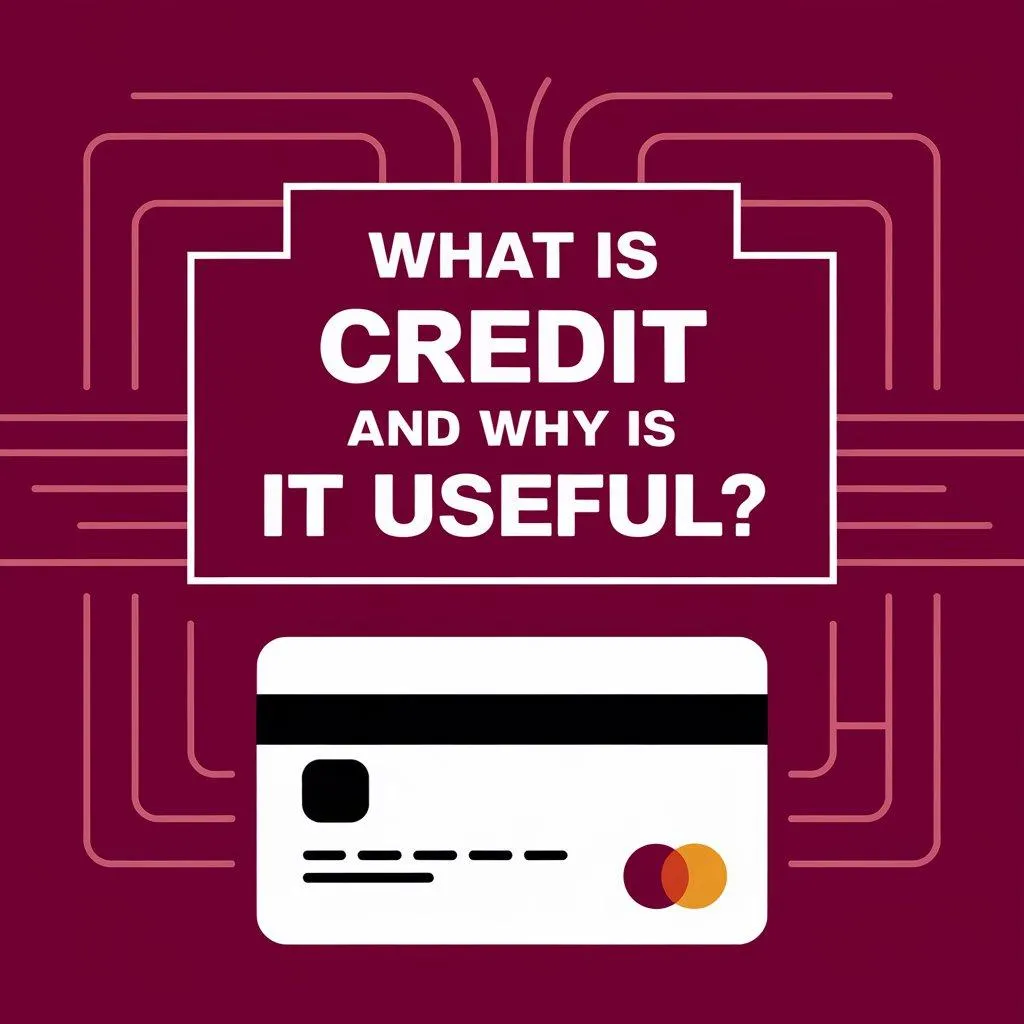
What Is Credit and Why Is It Useful?
Credit is more than just a number — it’s a reflection of trust, discipline, and opportunity. In simple terms, credit is an agreement that allows you to borrow money and pay it back later — but it’s also a record of how you handle that responsibility.

What Exactly Is Credit?
Credit can mean two things:
The ability to borrow money now and repay it later, usually with interest. This could be for something big like a car or home, or even everyday expenses like a phone or laptop.
Your financial history — a record of how you’ve borrowed and paid back money over time. This record lives on your credit reports and is what lenders use to calculate your credit score.
Why Credit Is Useful
Good credit opens doors. Whether you’re buying a home, starting a business, or securing funding for your next big move, lenders look at your credit to decide if they can trust you to manage money wisely.
Strong credit can help you qualify for better rates, lower fees, and bigger opportunities.
The Main Types of Credit
Not all credit works the same. Here are the three main types you’ll come across:
Revolving Credit:
This is most often a credit card. You have a limit and can spend up to that amount, repay, and reuse it. If you carry a balance, you’ll pay interest — but managing it wisely helps build your credit.Installment Credit:
This is credit you repay in fixed amounts over time, like car loans, student loans, or mortgages.Service Credit:
This is when you receive a service first and pay later — like your phone bill, electricity, or gym membership. Paying these on time can strengthen your credit reputation.
How You Get Credit
You usually start by applying for it — through a lender, credit card company, or financial institution. They review your credit history, income, and financial habits to decide your approval and limit.
If you’re new to credit or rebuilding, your limit might start small — but with consistency, it grows.
Your eligibility and creditworthiness are determined by two key tools:
Your Credit Report: A detailed record of your borrowing history.
Your Credit Score: A three-digit number (typically between 300–850) that sums up your financial behavior.
Why Good Credit Is Important
Credit impacts more than just loans — it shapes your financial reputation.
A strong credit score can mean:
Lower interest rates on loans and credit cards
Easier approval for housing or business funding
Better financial opportunities overall
Think of credit as your financial passport. It helps you move through life’s milestones with more freedom and fewer barriers.
How to Build or Strengthen Your Credit
No matter where you are in your journey, you can take steps to improve your credit health.
If you’re just starting out:
Become an authorized user on someone else’s established credit card.
Try a secured credit card that uses a deposit as collateral.
Consider a credit-builder loan from a local bank or credit union.
If you already have credit:
Always pay on time — even the minimum payment matters.
Keep your credit utilization under 30% (under 10% is even better).
Avoid closing your oldest accounts — your credit age is valuable.
Limit new applications — too many at once can lower your score.
Final Thoughts
Credit isn’t just about debt — it’s about direction. The better you understand and manage your credit, the more control you have over your financial destiny.
Use it wisely, build it strategically, and let it work for you — not against you.

